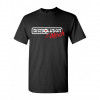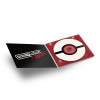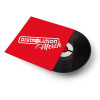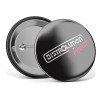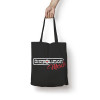Launching a music career may seem daunting, but 2025 offers unprecedented opportunities for independent artists. Thanks to modern technologies and direct access to listeners via social media and streaming platforms, it's now possible to make your voice heard without depending on a major label. However, a structured and strategic approach is essential for success. Here's a detailed guide to help you turn your passion into a thriving career.

Understanding the current music industry
Before you start, it's crucial to understand how the music industry works in 2025. The rules of the game have evolved, and independent artists now have many tools to compete with major labels.
The new dynamics:
- Social media dictates visibility: TikTok has become a major launchpad for new talent, while Instagram and YouTube remain essential for establishing a visual identity.
- The return of vinyl and physical products: As vinyl continues to grow in popularity, fans are looking for tangible objects to support their favorite artists.
Opportunities for independent artists: Labels are no longer the only gateway to success. Platforms allow artists to sell their music and merchandise directly, while retaining a large portion of the revenue (feel free to come and discover our online marketplace: distrolution.com). Additionally, tools like Spotify for Artists offer valuable data to better understand and engage your audience.
Tip: Stay informed about trends by following specialized blogs like Hypebot or podcasts about the music industry.
Defining your music project
Even before recording your first song, take the time to clarify your artistic identity. This isn't limited to your musical genre: it's also about your universe, your values, and the story you want to tell.
Building your artistic identity:
- Genre and sub-genre: Explore your niche. For example, instead of simply doing "rap", you could position yourself in "lo-fi rap" or "conscious rap".
- Image and branding: Your clothing style, visuals, and even how you communicate on social media should reflect your music.
- Storytelling: Listeners want more than just a song. Share your inspirations, your struggles, or what makes you unique.
A clear and well-defined project not only attracts fans but also potential collaborators, such as producers and managers.
Tip: Do a competitive analysis. Look at how artists in your style present themselves and identify what sets you apart from them.
Investing in suitable equipment and tools
Creating quality music no longer requires an expensive studio. With the right tools and a bit of creativity, you can produce professional tracks from home.
Essential equipment:
- Microphone: A good microphone is crucial for capturing clean sound. For example, the Aston Origin microphone will offer a versatile choice (voice, percussion, amps), while the Rode NT1-A will offer uncompromising quality while being more oriented towards voice recording.
- Audio interface: An interface like the Focusrite Scarlett 2i2 allows you to record with both microphones and your instruments, directly connected to your computer.
- DAW software: GarageBand (free for Apple users) is an excellent starting point. If you want something more advanced, opt for Ableton or LogicAudio.
Even the best equipment will be useless without the skills to use it. Fortunately, platforms like YouTube are full of tutorials to teach you the basics of mixing, mastering, and even composition.
Tip: Start simple. No need to buy all your equipment at once. Test, learn, and gradually improve your setup.
Building a music release strategy
Planning is key to maximizing the impact of your music releases. In 2025, it's essential to adopt a methodical approach to capture attention in a saturated market.
Why prioritize singles: Instead of releasing a full album, start with singles. This allows you to maintain a constant flow of content and keep your audience engaged. For example:
- Release a single every 6 to 8 weeks.
- Use each release to test different promotion strategies.
Preparation for release:
- Registration on a digital distribution platform: Services like TuneCore or DistroKid allow you to distribute your tracks on all streaming platforms.
- Pitching for playlists: You can use media like Groover to get shared on playlists or to get professional reviews.
- Teasing on social media: Share snippets of your song, behind-the-scenes videos, or anecdotes to create anticipation.
Tip: Create a content calendar to support each release (TikTok post, Reels, teasers, etc.).
Becoming visible through social media
Social media is now the main lever for building and engaging an audience. But to make the most of it, you need to adopt a thoughtful strategy.
TikTok, The king of music discovery: In 2025, TikTok remains a key platform for musicians. Challenges, short videos, and trending sounds allow artists to go viral quickly.
YouTube, More than a video platform: Create music videos, acoustic versions, or even vlogs to show your personality. A well-maintained YouTube channel can generate passive income through ads.
Instagram, To build a loyal community: Use Stories to share spontaneous moments, Reels to expand your reach, and Posts to build your visual brand.
Tip: Analyze your statistics on each platform to understand what type of content works best.
Understanding the importance of merchandising
Merchandising is much more than just a source of income. It's a way to strengthen your connection with your fans by offering them a tangible way to show their support.
Merchandise to consider:
- Custom T-shirts and sweatshirts.
- Caps or tote bags with your logo.
- Vinyl and CDs for physical format enthusiasts.
Start small with an online store (Distrolution) and expand your range as your fanbase grows.
Tip: Collaborate with local designers to create unique and authentic products.
Finding and building a community
In 2025, having passive fans is not enough: you need to create an engaged community. This means offering your listeners ways to connect with you and with each other.
Tools for building a community:
- Discord: Create a space where your fans can exchange, ask questions, and interact with you directly.
- Meet them: at events or organized outings.
- Newsletter: A classic but effective method to keep your fans informed.
- Livestreams: To ask for their opinions and interact with them directly.
Tip: Offer personal interactions, such as Q&A sessions.
Collaborating with other artists and professionals
Networking is a major asset for any music career. By collaborating with other artists, you expand your audience while enriching your music.
Collaboration ideas:
- Write a song with an artist from another genre to expand your audience.
- Invite a local musician to participate in your live show to create connections.
- Share your photos / videos by collaborating and pooling your communities.
Tip: Participate in music events or Facebook groups to meet professionals who share your goals.
Succeeding in your first concert or tour
Concerts are a unique experience to share your music. Even if you're just starting out, careful preparation can turn your performance into a memorable moment. Moreover, it can be an excellent opportunity to generate your first significant revenue by offering merchandise (example: T-Shirt, CD, or why not both at the same time).
Checklist for your first concerts:
- Practice your setlist until it's perfect.
- Pay attention to the dynamics of your show (mix calm and energetic tracks).
- Engage your audience by sharing anecdotes or talking to them between songs.
- Don't forget your merch!
Tip: Document your performance with photos and videos for your portfolio.
Conclusion
Launching a music career in 2025 is an exciting challenge. With good preparation, a strong identity, and a strategy adapted to current trends, you can achieve your goals. It's time to put your ideas into action and start your musical journey.
The whole team wishes you good luck, and may your music find its audience!

